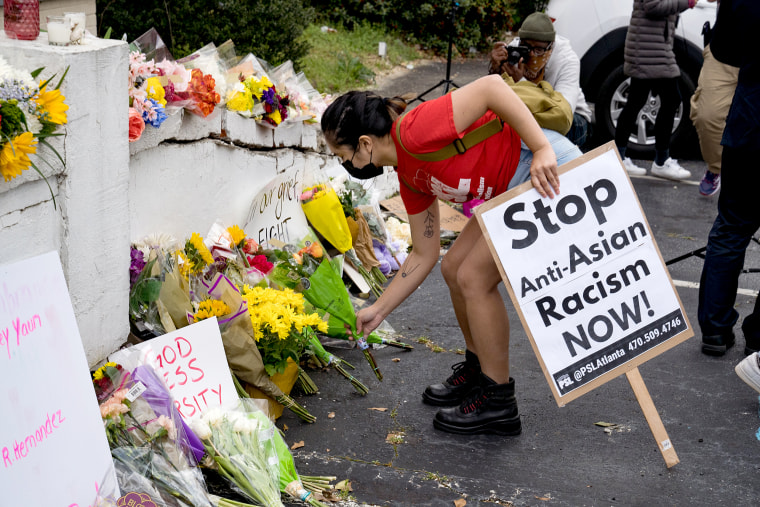It's not uncommon for Congress to take up symbolic resolutions on major national tragedies, and yesterday was no exception: the House approved a measure on the mass shooting in Atlanta from March. But while these votes tend to be lopsided -- no one wants to be seen as pro-tragedy -- the Washington Post noted that yesterday's vote was unusually close.
The House on Wednesday passed a resolution condemning the Atlanta shooting in March that led to nationwide attention to violence against Asian Americans.... The resolution sought to reaffirm the House's commitment "to combating hate, bigotry and violence" against Asian Americans and Pacific Islanders. It came a day after the House passed legislation to aggressively investigate hate crimes, especially those targeting Asian Americans and Pacific Islanders, that have increased during the coronavirus pandemic.
In theory, this seems like the sort of resolution that would pass unanimously. In practice, 180 of the chamber's 211 Republican members -- roughly 85% of the conference -- voted against it. Even Georgia Republicans opposed the resolution, and the deadly mass shooting happened in their own state.
And why, pray tell, did this non-binding measure generate so much GOP opposition?
Because the resolution included a provision noting that racist rhetoric -- including "Kung Flu" and "Wuhan Virus" -- contributes to racism and violence against Asian Americans. As Forbes reported, this became a partisan issue.
Some Republicans took issue with the resolution's mention of the coronavirus nicknames, and GOP leaders urged members to oppose it, according to a GOP source. Rep. Julia Letlow (R-La.) said in a floor speech she had "hoped" to support it but that it's "just another vehicle for delivering cheap shots against our former president."
In other words, Donald Trump used racist rhetoric; the resolution condemned racist rhetoric (though it did not reference the former president); and most of the House Republican conference felt the need to reject the measure in order to avoid giving the appearance of indirectly criticizing Trump.
This is GOP politics in 2021.

